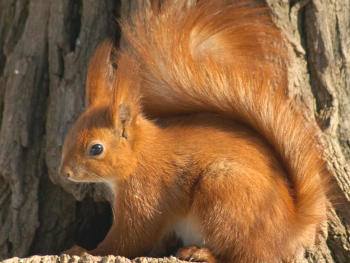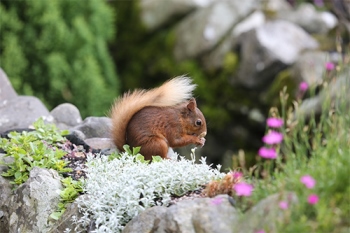The Sedbergh Red Squirrel Group

Welcome to the Sedbergh Red Squirrel Group

We are a group of people involved in the conservation of red squirrels in the Sedbergh area. We are committed to preserving red squirrels in their natural environment and protecting them from extinction in the wild.
Our aims are to raise public awareness of the difficulties facing red squirrels and to encourage more people to become involved in helping them.
On this website you can read about the history of red squirrels in Britain and the difficulties they now face as a result of habitat loss and disease, and you can find out about the little things that you can do to help them. In particular you can report sightings of both red and grey squirrels to help us monitor them. Please e–mail us at sedberghredsquirrels100@gmail.com

